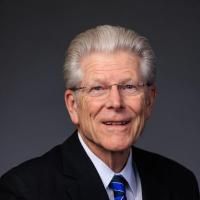How faculty discipline and beliefs influence instructional uses of writing in STEM undergraduate courses at research-intensive universities
Date
2021-02-01
Journal Title
Journal ISSN
Volume Title
Repository Usage Stats
views
downloads
Citation Stats
Abstract
Efforts to accelerate the pace of adoption of writing-to-learn (WTL) practices in undergraduate STEM courses have been limited by a lack of theoretical and conceptual frameworks to systematically guide research and empirical evidence about the extent to which intrapersonal attributes and contextual factors, particularly faculty beliefs and disciplinary cultures, influence faculty use of writing assignments in their teaching. To address these gaps, we adopted an ecological systems perspective and conducted a national survey of faculty in STEM departments across 63 research-intensive universities in the United States. Overall, the findings indicated that 70% of faculty assigned writing. However, the assignment of writing differed by faculty demographics, discipline, and beliefs. More specifically, faculty demographics accounted for 5% of the variance in assignment of writing. Faculty discipline accounted for an additional 6% increment in variance, and faculty epistemic beliefs and beliefs about effectiveness of WTL practices and contextual resources and constraints influencing the use of writing in their teaching together accounted for an additional 30% increment in variance. The findings point to faculty beliefs as salient intervention targets and highlight the importance of disciplinary specific approaches to the promotion of the adoption of WTL practices
Type
Department
Description
Provenance
Subjects
Citation
Permalink
Published Version (Please cite this version)
Publication Info
Thompson, RJ, SA Finkenstaedt-Quinnb, GV Shultz, AR Gere, L Schmid, JE Dowd, M Mburi, LA Schiff, et al. (2021). How faculty discipline and beliefs influence instructional uses of writing in STEM undergraduate courses at research-intensive universities. Journal of Writing Research, 12(3). pp. 625–656. 10.17239/jowr-2021.12.03.04 Retrieved from https://hdl.handle.net/10161/29035.
This is constructed from limited available data and may be imprecise. To cite this article, please review & use the official citation provided by the journal.
Collections
Scholars@Duke

Robert J. Thompson
My research and teaching interests include how biological and psychosocial processes act together in human development and learning. One area of focus has been on the adaptation of children and their families to developmental problems and chronic illnesses, including sickle cell disease and cystic fibrosis. Another area of focus is enhancing undergraduate education through scholarship on teaching and learning and fostering the development of empathy and identity.

Julie Reynolds
Julie Reynolds has a Ph.D. in biology but, through a series of unexpected events, became an expert in writing pedagogies. She spent 5 years learning to teach writing as a postdoctoral fellow in Duke University’s first-year writing program before transitioning to the biology department where she has taught science writing and writing-intensive courses to thousands of undergraduates and graduate students. With over a decade of funding from the National Science Foundation, her disciplinary-based education research has focused on how writing assignments can promote deep, conceptual learning, especially in large science courses. Dr. Reynolds is also a writing coach and has helped hundreds of scientists across the country to increase their productivity while reducing stress associated with writing.
Unless otherwise indicated, scholarly articles published by Duke faculty members are made available here with a CC-BY-NC (Creative Commons Attribution Non-Commercial) license, as enabled by the Duke Open Access Policy. If you wish to use the materials in ways not already permitted under CC-BY-NC, please consult the copyright owner. Other materials are made available here through the author’s grant of a non-exclusive license to make their work openly accessible.
